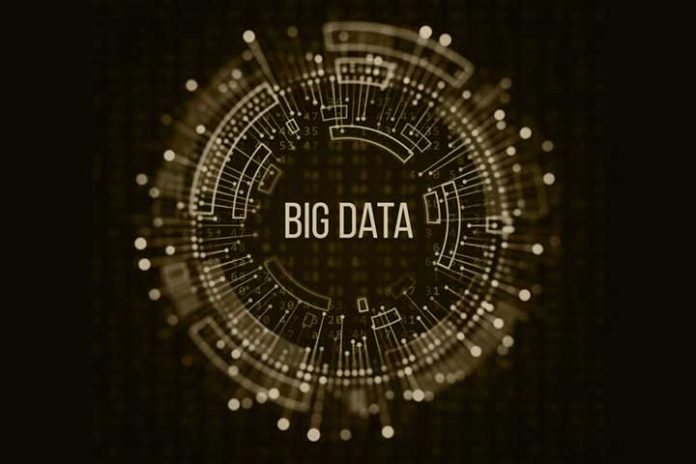Big data is becoming popular all over the world. They are mainly used by analysts but also of interest to ordinary people.
This working tool is an excellent source of valuable data and information. And at the same time, in society, it raises fears of excessive oversight by the corporations that use it.
What is big data
Big data tends to search, collect and process all available data. The collection method is legal, based on information from various sources. Then follows the analysis of the received data and their use for their purposes. As a result, a consumer profile is created, which is subsequently applied, for example, to increase sales.
There is no exact boundary that defines what can be classified as big data, such as 1 gigabyte or 100 terabytes. The concept itself is subjective, “large” means “many.”
The essential thing in big data is the processing of information its analysis. Just collecting data by itself is useless, and however, gathering information is also fundamental.
Where, from what sources to take data? Camcorders? Terminals? Computers? Data can be taken and accumulated everywhere where people have “lit up” in one way or another. Not even the people themselves, but their actions, what they did, what they were interested in, what they bought, what services they ordered.
Big Data Use Cases
Big data is ubiquitous today. The following are examples of objects that use them in their activities:
Banks – collect data from user accounts. These include the payments made, their amount, and the type of goods purchased.
Companies – offer their applications that users download on smartphones and tablets. The user allows the application to access their data when the product is installed on the device. Even if it is possible to deny such access, the user will be rejected downloading and installing the application.
Owners of Internet portals – through their services, they may also collect data. Consent to such activities is often in agreement when registering on the site.
Social networks and big data
Social networks are also a source of massive data. The information obtained from them is difficult to analyze since it does not contain numerical values that are easy to compare. But social networks can be interpreted in terms of the presence and content of keywords, the frequency of user posts, and the time people respond to posts posted in the public domain.
Of course, it is easier to analyze digital data about transactions on bank cards of their holders. It is much more difficult to programmatically “read” into people’s correspondence in social networks. Nevertheless, according to some unique features, algorithms for searching for information by keywords are currently developing rapidly. And these algorithms will be used to collect extensive data about social media users, their preferences, and interests.
Why so “work,” collecting information “bit by bit”? To then offer users of social networks something that they “cannot refuse”: goods and services, social and commercial projects, finally, you can look for potential employees. It’s impossible to list what can be learned from the information posted by people on social networks.
Data processing – methods and tools
The volume of data collected is enormous and increases with each subsequent action the user performs. Some information is more valuable. Therefore, the next step in the work of analysts after collecting data is the correct sorting of information. For this, special analytical tools are used.
Since queries must dash, all analysis is done in parallel. For this purpose, the MapReduce algorithm is used. It allows you to distribute entered datasets across multiple servers to organize the information and select the desired items according to the query rules.
There are other good tools for analysis. The choice of the most suitable depends on the preferences of the user and the expected results. The most popular of them:
Hadoop
It is considered the backbone of big data technology. It is a project of the Apache Software Foundation. This is a freely distributed set of utilities, libraries, and frameworks for developing and executing distributed programs running on clusters of hundreds and thousands of nodes.
Is big data worth it?
Big data has enormous potential for analyzing and predicting consumer behavior. Based on the collected data, the nature of the needs can be precisely specified, and the ideal solution can be effectively provided. Thus, it is possible to create a sufficiently large competitive advantage in the market.
The public has some doubts about big data, mainly due to the fear of intrusion into privacy and deliberate misrepresentation to sell something. This is a very delicate border, and it depends only on companies how far they go in implementing their plans.
Big data is a tool that helps organizations better understand their target audience and offer the perfect product to the consumer. This means that enterprises will undoubtedly use the opportunities provided. Nothing personal, just business!
Everything new is always intimidating. Moreover, tools that involve the systematization of information and knowledge about people’s behavior and preferences will cause fear. One way or another, big data will still develop, be it banking, be it marketing and sales, be it security.
It is unlikely that anyone will stop progress since humanity has real opportunities to accumulate, store, process, and systematize massive data.
Legislative efforts will be made to limit the invasion of big data into personal privacy. But these will be only restrictions, but not the abolition of existing opportunities. Once they discovered America, because it is now impossible to close it, isn’t it?! Same with big data…

